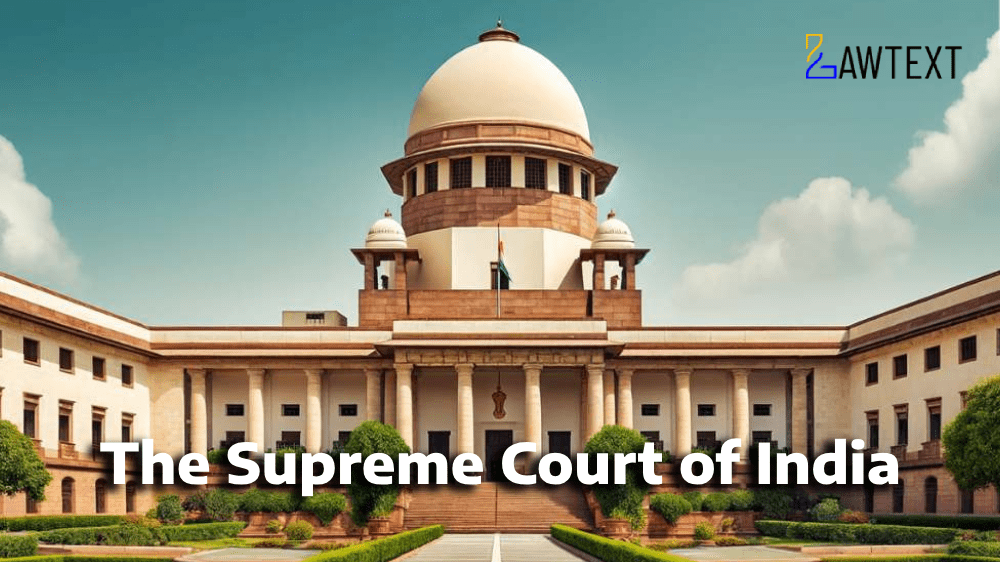

The Supreme Court of India, upheld the rights of individuals with disabilities to pursue higher education. The appellant, Omkar Gond, who has a 45% speech and language disability, was initially denied admission to the MBBS course despite qualifying for NEET under the Persons with Disabilities (PwD) quota. The court held that quantified disability should not automatically disqualify an individual from pursuing a course if the disability does not impede their ability to complete the course. The court directed that the appellant’s admission be treated as valid, ensuring that future assessments focus on the candidate's ability rather than rigid benchmarks.
Background of the Appellant:
Omkar Ramchandra Gond, hailing from Latur, Maharashtra, aspired to become a doctor. Despite a commendable academic record, he faced legal hurdles due to a speech and language disability that exceeded 40%.
Disability Certification and NEET Application:
Gond applied for NEET (UG) 2024 under the PwD and OBC categories. His disability was certified as 45%, making him ineligible for medical courses under the National Medical Commission (NMC) norms, which disqualified candidates with speech disabilities exceeding 40%.
Medical Board's Initial Rejection:
After qualifying NEET, the appellant was denied admission based on the NMC's guidelines, which deemed him ineligible due to his disability percentage. The Disability Certification Centre refused to grant him the benefit of the PwD quota.
Legal Challenge in High Court:
Gond challenged the NMC's criteria in the Bombay High Court, arguing that the regulations exceeded the scope of the Rights of Persons with Disabilities Act, 2016 (RPwD Act), and denied him the benefits of reservation.
Intervention by Supreme Court:
Dissatisfied with the High Court’s delay, the appellant approached the Supreme Court, which intervened by directing a new medical examination. The medical board confirmed that his speech and language disability would not prevent him from pursuing an MBBS course.
The Issue at Hand:
The court examined whether individuals with disabilities exceeding 40% should be barred from medical courses. The bench found that such rigid classifications violated constitutional principles of equality under Article 14.
Interpretation of RPwD Act:
The court held that a person’s disability alone should not disqualify them unless it directly hinders their ability to complete the course. The court emphasized the need for a "reasonable accommodation" approach, ensuring that institutions support persons with disabilities to achieve their educational goals.
Final Judgment:
The court granted admission to Gond and called for the reformulation of NMC guidelines, directing that future regulations should adopt an inclusive approach to persons with disabilities.
The court's decision rested on the principle that rigid application of disability benchmarks should not result in the exclusion of individuals who are otherwise capable of pursuing education. The ruling emphasizes that the intent of the RPwD Act is to foster inclusion, not to create barriers.
Rights of Persons with Disabilities Act, 2016 (RPwD Act):
Directive Principles of State Policy (Article 41):
The state’s duty to provide education and assistance to individuals with disabilities.
Disability rights, Inclusive education, Medical education
RPwD Act, Supreme Court, NEET, Disability reservation, Reasonable accommodation, NMC guidelines, Constitutional law
Citation: 2024 LawText (SC) (10) 151
Case Number: CIVIL APPEAL NO. 10611 OF 2024
Date of Decision: 2024-10-15
Case Title: Omkar Ramchandra Gond Versus The Union of India & Ors.
Before Judge: (B.R. Gavai J. , Aravind Kumar J. , K.V. Viswanathan J. )
Appellant: Omkar Ramchandra Gond
Respondent: The Union of India & Ors.